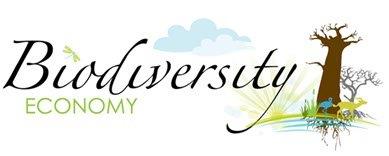Biomass
Biomass is generally regarded as...
any carbon-based material such as animal (including human) waste, plant material, food waste, algae and industrial waste which when processed can produce organic fuels.
Sources of biomass include:
- wastewater treatment plants
- landfill sites
- pulp and paper industries
- wood mills and furniture industries
- animal ranches
- grasses and trees
- alien invasive species
- bush encroachment
- horticulture centre abattoirs
The two sources of biomass requiring urgent attention are alien invasive species and bush encroachment zones.
Through an integrated invasive alien biomass eradication and beneficiation strategy, multiple benefits can be achieved for climate change mitigation, adaptation and the green economy.
Recent local and global studies emphasise that South Africa is regarded as extremely vulnerable to the effects of climate change, including changes in
rainfall patterns, increasing frequency of wildfire disasters, flooding, water insecurity and loss of critically important biodiversity.
The risks associated with accelerated climate change, including water insecurity and frequent wildfire disasters due to the prevalence of high volumes of invasive alien plants (IAPs) and encroacher plant biomass, as well as reducing indigenous biodiversity to the brink of extinction, make the development of a sustainable IAP and bush encroachment biomass economy an increasingly attractive option.
Cleared alien and invasive woody biomass provides opportunities for developing green value chains that restore ecosystems for adaptation and mitigation, catalyse private sector financing and provide energy alternatives, amongst other uses.
The alien and invasive biomass industry encompasses, for example, the production of charcoal and briquettes, biochar for agricultural and pharmaceutical use, biomass-to-energy projects, animal feed, compost mixtures, timber manufacturing for construction, and fencing and furniture products. By-products such as tannin and wood vinegar are also produced. In many rural households, alien and invasive biomass is the sole source of energy for cooking and heat harvesting.
Opportunities in the Invasive Alien Plants (IAP) Biomass Sector
Opportunities for developing green value chains
In the face of a global economic downturn, as well as extreme levels of unemployment in South Africa, using IAP and bush encroachment biomass as a resource makes sense at various levels. IAP and bush encroachment biomass can assist the country in creating a green economy and drive the development of cleaner energy alternatives or other product diversification across sectors like agriculture, horticulture, or mining.
Opportunities for the restoration of ecosystems
Increase local capacity building and employment opportunities.
Ecotourism is an effective vehicle for empowering local communities around the world to fight against poverty and to achieve sustainable development.
Opportunities for the development of the SMME sector
Within this context, the development of a sustainable biomass economy can contribute significantly to generating economic opportunities in the mainstream economy to support the creation of job opportunities and provide impetus to the development of the Small, Medium and Micro Enterprise (SMME) sector.
The Biomass Sector continues an upward curve as demand for the resource increases.



